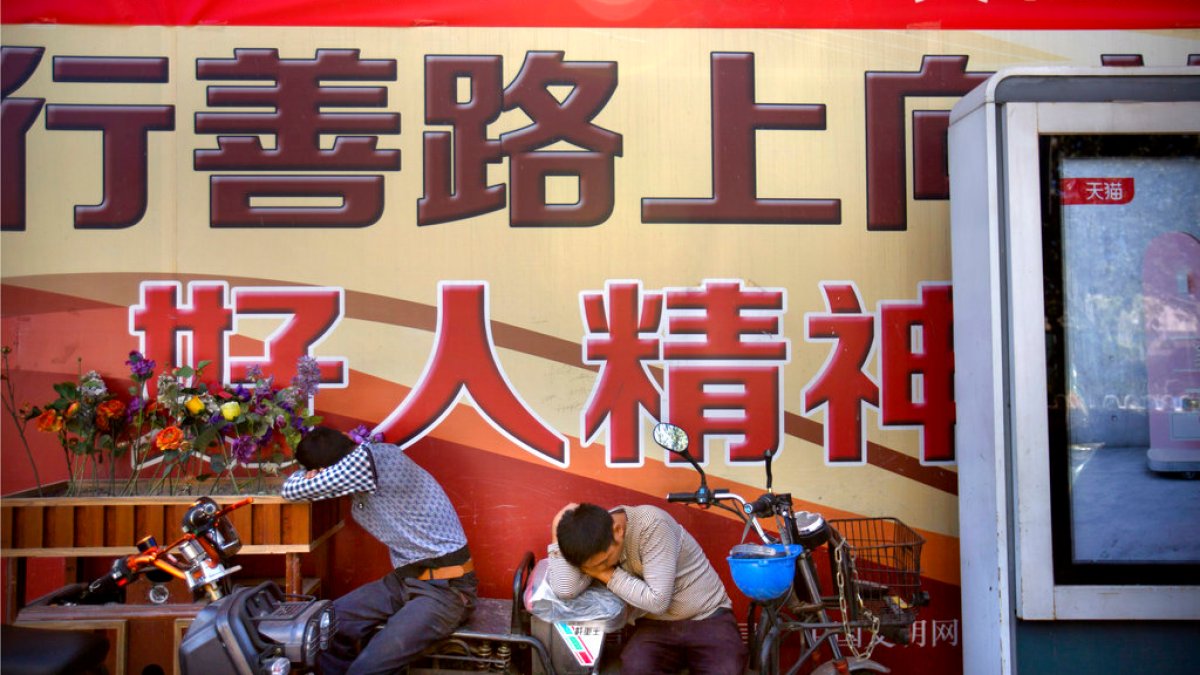TAIPEI, Taiwan — The last time Donald Trump was president, he imposed a series of tariffs on China that disrupted global trade. He's threatening to do it again.
The First Round inadvertently brought China and Mexico closer together on trade and foreign investment, as China sought new trading partners and a detour for its exports to reach the United States.
This time Trump has targeted not only China but also Mexico and other Latin American countries.
The Times spoke with John Polga-Hecimovich, an associate professor of political science at the US Naval Academy, who argues that the new Trump administration could change the balance of power between China, the United States and Latin America.
How have relations between Latin America, China and the US changed? on the last two decades?
Latin American governments are beginning to see China as a truly viable economic alternative to the United States.
In the early 2000s, a group of left-wing governments came to power in what was called “the pink tide.” China sought out those governments, and those governments sought out China. Then the centrist and right-wing governments saw the success that the left-wing governments had and they too turned to China.
The US response to this has been unfocused, to put it charitably. China's economic rise was driven by its interest in securing resources during the commodities boom. And with its global geopolitical ambitions, it certainly makes sense for China to have a long-term strategy in the region. While American strategy has ping-ponged since [Presidents] Obama to Trump to Biden to this [incoming] Trump administration.
The United States has been the undisputed economic hegemon in Latin America for most of the region's post-independence history. But over the past two decades, China has actually displaced the United States as the region's top trading partner. Mexico is the great regional exception.
How did that dynamic affect Trump's first term?
Since 2016, bilateral trade between China and Mexico has increased tremendously. China is now Mexico's second trading partner after the United States.
Part of the story is that China very cleverly uses Mexico as a launching pad to bring its products to the United States, basically tariff-free. Most of Mexico's industrial activity is located in the northern part of the country: Baja California, Tijuana, Chihuahua state, Monterrey. They have these strong logistics networks and these important manufacturing centers. That is where Chinese companies have moved.
The Chinese have taken advantage of the post-Covid environment to essentially move their businesses to a country “near the coast” of the United States. This allows Chinese companies and American consumers to save on shipping costs and tariffs. The final products that are made are considered completely “Mexican.”
Chinese Foreign Minister Wang Yi speaks during a meeting with Mexican Foreign Secretary Marcelo Ebrard at the Diaoyutai State Guest House in Beijing in July 2019.
(Mark Schiefelbein/Associated Press)
So the question is: How will the Trump administration respond to this? Will you try to renegotiate elements of the United States-Mexico-Canada Agreement? Trump has said he wants to impose a 25% tariff on all products from Mexico and Canada. That would ruin the American economy. I don't know if that's bragging for negotiating purposes, or deliberately ignorant, or both.
How has Biden addressed growing ties between China and Mexico?
Biden has not dismantled Trump's anti-China tariffs. I think that instead of taking a stick approach, the Biden administration has taken more of a carrot approach when it comes to Mexico and what the United States wants from it, which is cooperation on migration and security issues, on trafficking of narcotics and especially fentanyl. So I think trade falls much lower on the list for the Biden administration than it does for the Trump administration.
Will that change under Trump?
Now it is not enough for Latin American countries, especially Mexico, to be pro-United States. They also have to be actively anti-China.
Certainly the [Claudia] Sheinbaum's administration in Mexico will be under enormous pressure to try to satisfy Trump and his own electorate. They are going to have to play a very, very delicate game. I see this as a Trump strategy that prioritizes coercion. Your comments about [wanting to take control of the] Panama [Canal] – which he frames as a fight against China – have dominated the news. So I think Sheinbaum will have to be openly anti-China. I don't know if actions will have to follow words. That's the question everyone has.
What about other Latin American countries?
Mexico is the key country. China is the largest trading partner of Brazil and many other large South American countries. But the United States is not concerned about nearshoring in Brazil. It focuses primarily on the places that make up America's backyard: Mexico and Central America and the Caribbean. And to a much lesser extent, countries that have sought mega-investments from China, such as Peru. But I think Mexico is the primary concern for the United States, at least economically, and with respect to China.
Is there still value for China to invest in Mexico if Trump increases tariffs on Mexican products?
Absolutely. Mexico is the thirteenth largest economy in the world. It makes sense that China would want access. And he is also happy to devour products from Mexico. But certainly having access to a growing middle class in a country with hundreds of millions of people makes a lot of sense for the Chinese industry. So I think it's a good bet for China, apart from the ability to use Mexico to introduce things to the United States.
Are there other advantages for Mexico to having closer ties with China?
China has two great advantages for Mexico, and the first is that it is not the United States. China is across the ocean and the United States is right next to Mexico. So, for better or worse, the United States and Mexico are always going to have some type of relationship, whether friendly or rivalry. China can avoid that because it does not have 200 years of history with Mexico.
The second is that China doesn't really care what kind of government is in power.
The United States under Biden has issued statements about its concerns about human rights, civil liberties and judicial elections, basically commenting on the erosion of democracy in Mexico. Do you know who doesn't comment on the erosion of democracy in Mexico? Porcelain. This is seen as a great advantage by a group of Latin American leaders, especially authoritarian ones.
Are there any concerns for Latin American countries about becoming more dependent on China?
China's trade and investment has not brought about radical change as these places thought.
Latin Americans right now are feeling a bit of buyer's remorse. These countries are seeing that Chinese companies have not paid attention to the environment. They have not necessarily employed Latin Americans, but rather Chinese workers. The supposed benefits have not materialized in the way they hoped or were promised, and they are seeing that perhaps replacing one hegemon with another does not necessarily improve life for everyone.












